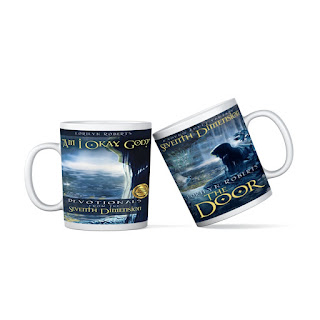I recently met James Scott Bell at a writer’s conference and share this interview with him about his indy book Self-Publishing Attack! The 5 Absolutely Unbreakable Laws for Creating Steady Income Publishing Your Own Books.
LORILYN ROBERTS: You made the statement in your book Self-Publishing Attack! The 5
Absolutely Unbreakable Laws for Creating Steady Income Publishing Your Own
Books, “And, you are going to face those who want to criticize you as
having ‘taken the easy route’ without submitting your work to traditional
publishers and agents for their concurrence that you have what it takes.”
I have found that many who are
traditionally published are very judgmental and condemning of those who POD or
self-publish, even to the point of not reviewing books by indy authors, not
recognizing them as “real” authors, casting dispersions on their books sight
unseen, and not promoting their books on blogs and websites.
My philosophy has always been, “Does God
really care how books are published?” We have a world full of souls that are
literally going to hell if they don’t hear the truth of God’s Word. We have the
opportunity to publish and spread a Christian worldview in a way never seen in
history. God’s prophets wrote the Bible by hand on parchment and clay tablets
and walls and papyrus. My question to you is, how can we change the
consciousness of publishing, particularly in the Christian community, and
embrace the idea of “one in the spirit” when it comes to marketing and publishing
books?
JAMES SCOTT BELL: I think it’s going to change on
its own. The die is cast. We are in a new era and books will come in different
forms, from the traditional side and the self-publishing side. Eventually,
there will be no room for judging, except on the merits of a work. Which is how
it should be.
LORILYN ROBERTS: You made the statement in your
book Self-Publishing Attack!
The 5 Absolutely Unbreakable Laws for Creating Steady Income Publishing Your
Own Books, “And you are free to write about any subject that interests you,
that you think you can sell.” In the John 3:16 Marketing Network, we have lay
authors writing on Biblical topics that are selling very well in ebooks. I used
to think I would love to tackle some deeper subjects in the Bible, but I am not
a pastor nor do I have a seminary degree or a scholarly platform. But it seems
that ebooks allow anyone to write on anything that interests them and make
money? Why do you think that is?
JAMES SCOTT BELL: Well, to “make money” requires providing
a product that has value. This is the way markets work. With self-publishing,
that can be put to the test. For writers, it means putting out the best quality
book possible (Law #2 in my book). And then repeating that, over and over.
A writer certainly ought to write what
interests him, that’s where the passion is. But you should also expand your
interests! Writing can be just as much about growth as it is making lettuce.
LORILYN ROBERTS: I have found in the John 3:16
Marketing Network that the single most challenging issue for writers is
technology – how to set up and manage Twitter and Facebook, how to create a
landing page for book launches, how to resize jpegs and format files into
ebooks, just to name a few. Writers quickly get discouraged, daunted by
the amount of time it takes to learn it all, not counting the actual process
once you master the basics. Do you have any practical ideas on how to tackle
the seemingly endless changing landscape of I.T. and balancing that with the
creative side of writing?
JAMES SCOTT BELL: The nice thing is that these
functions can be farmed out at a reasonable price. Simply pay for those things
you are not comfortable doing. Especially when it comes to editing, cover
design and formatting. You can find an almost unlimited number of freelancers
in each area. Get recommendations, check portfolios and client comments. Do a
little homework.
LORILYN ROBERTS: A follow up question to the previous
one is this: I find it difficult to switch back and forth from marketing to
writing. Once I am in one mode, I tend to get stuck there emotionally and
mentally. Do you have anything you do to help you switch gears and maintain
that sense of balance on a daily basis?
JAMES SCOTT BELL: I put both my marketing and my
writing on “automatic.” For my writing, I have a quota of words to complete
each week. I break that down into days, and then I schedule my time. As for
marketing, I make plans and then work the plan. This, again, can be scheduled.
Dedicate part of your week to studying
marketing. Even if it’s just one hour. Read books and blogs and take notes.
Eventually, you can put together a plan. I go into more detail about strategy
in my book.
LORILYN ROBERTS: You write both fiction and
nonfiction. Do you have any thoughts on which sells better—if you are capable
and enjoy writing both, which would you recommend a new author write to “break
into the e-market”?
JAMES SCOTT BELL: There is no rule here. Fiction and
non-fiction can both sell, if done with excellence. Regarding non-fiction, I
always start by recommending William Zinsser’s classic, On Writing Well. Study the heck out of that book before
you write anything.
For fiction, I spend a lot of time
teaching writers, including 2 day seminars. I have two more scheduled for this
year.
LORILYN ROBERTS: I took a peek at your ebook on
Amazon, The Year of Eating
Dangerously (Mallory Caine, Zombie at law) that
you publish under the name K. Bennett. I couldn’t find a link to your name
James Scott Bell anywhere. Why did you use a pen name for this series? It seems
contradictory to use a pen name when you are trying to build a reputation and
following as a writer. Would you recommend less well-known authors use a pen
name for divergent content?
JAMES SCOTT BELL: My agent and I decided to use a
pen name simply to distinguish the content. In the books themselves the author
bio states that K. Bennett is a pseudonym for James Scott Bell. This was for
traditional, print-world purposes. I’m not sure a pen name is necessary in the
digital world. You don’t have to worry about bookstore buyers and self space.
But I like having the K. Bennett brand for paranormal. I will probably do other
stories in that genre, and use this name for them.
LORILYN ROBERTS: Under the heading “What About Paid
Positioning,” I appreciate your comment: “Don’t go into debt.” One of the
reasons I started the John 3:16 Marketing Network was I believed with the
combined knowledge of many authors, we would be better informed and protected
from expensive marketing techniques that produce few sales. Do you have any
thoughts on how much an author should set aside to promote a newly published
book?
JAMES SCOTT BELL: Just use discretionary funds and be
wise about it. In that section of my book I talk about what seems to work best,
and most of the time it’s not something that you pay for. That’s the good news.
The challenge is to write great books and gain attention. It can be done, but
it takes time.
LORILYN ROBERTS: To be quite honest, you are on the cutting
edge of thought in your book Self-Publishing
Attack! The 5 Absolutely Unbreakable Laws for Creating Steady Income Publishing
Your Own Books. Given what
you have written, what would you tell a new writer to do—go the traditional
route or indy and why?
JAMES SCOTT BELL: It’s no longer either/or. I was just
at ThrillerFest in New York, where I had the honor of being the first writer to
have a self-published story up for the ITW award. There will be more of this.
And while I was there I met an author who
has just signed a multiple book contract with a traditional house, after having
his self-published novel come to the attention of an editor there.
The world is now the writer’s oyster.
Follow the 5 Laws. The last one being to repeat the strategy I lay out, over
and over, for the rest of your life. Why not? We’re writers. It’s what we’ll do
until we drop.















.jpg)













